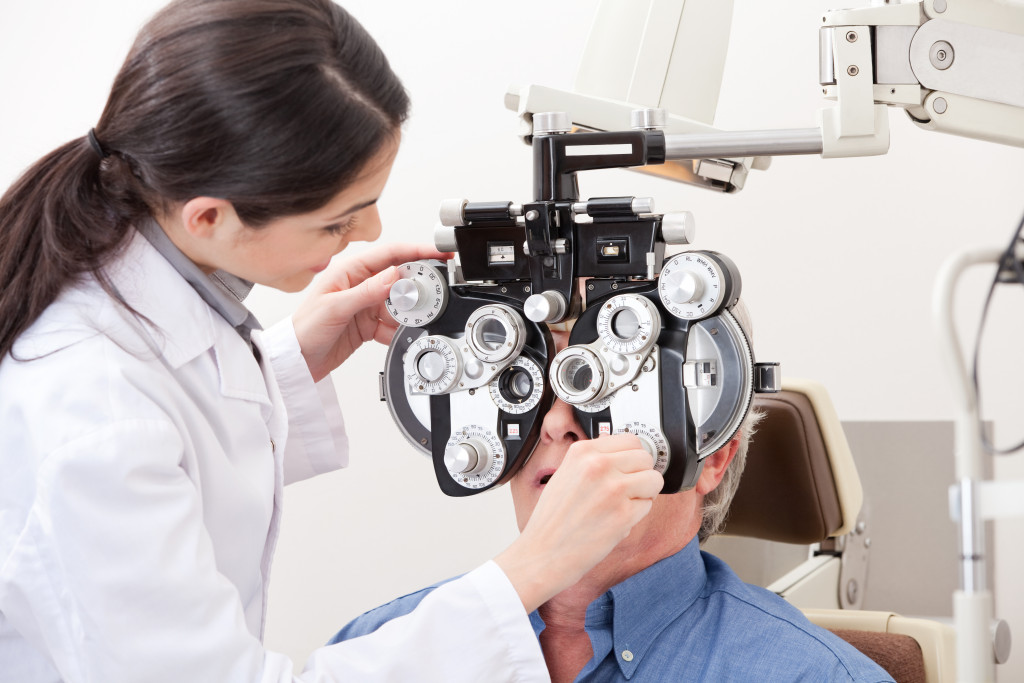- Regular health checkups help in the early detection of diseases, facilitating preventative measures and ensuring optimal health.
- Annual physical exams, including vital signs, checks and laboratory tests, are crucial for preventive care.
- Regular vision tests ensure visual health and help detect systemic diseases that can manifest in the eyes.
- Dental checkups are vital for oral health and can reveal signs of systemic diseases that manifest in the mouth.
Regular health checkups are essential to the early detection and treatment of potential health problems. They comprehensively assess your current health status, facilitating preventative measures and ensuring optimal health. Chronic diseases like heart disease, cancer, and diabetes are responsible for 7 out of every ten deaths yearly—many of these are preventable. Regular screenings can identify these conditions earlier when treatment is likely to work best. Furthermore, a study published in the Annals of Internal Medicine demonstrated that routine checkups led to more health condition diagnoses than those not having regular checkups.
However, regular checkups need to be strategic, especially when you don’t have a healthcare premium to rely on. Fortunately, you can schedule health checkups according to your needs. Here are a few you might need to do:
Annual Physical Exams
Annual physical examinations serve as a cornerstone in maintaining overall health. They offer a chance for healthcare providers to evaluate your general health and identify any potential areas of concern before they transform into significant health issues. Regular physical checkups are crucial for preventive care and are an excellent opportunity to update vaccines, discuss health concerns, and understand your body better.
Vital Signs Check
A simple yet informative part of the annual physical examination is checking vital signs. This includes blood pressure, heart rate, respiration rate, and body temperature. It gives healthcare providers a snapshot of your essential bodily functions.
Laboratory Tests
An annual physical examination often incorporates laboratory tests such as blood and urine tests. These tests can evaluate various health aspects like blood sugar, cholesterol, and kidney function.
Physical Examination
Your healthcare provider will conduct a thorough physical examination. This includes examining your head, neck, extremities, and abdomen and checking the functionality of all body systems.
Immunization Update
Your healthcare provider will check your immunization status and update it if necessary. This is especially important for preventing diseases that have vaccines, like the flu, hepatitis, and tetanus.
Health Discussion
During an annual physical exam, there is a chance to discuss lifestyle habits, diet, exercise routine, and mental health concerns. This is an excellent opportunity to bring up any health questions or concerns.
Vision Tests

Vision tests are integral to annual health checkups, especially as vision changes are often subtle and gradual. These tests are conducted by a professional optician who checks your visual acuity and overall eye health. Over time, unnoticed changes in your vision can lead to significant impairments, affecting daily activities like reading, driving, or operating machinery. Regular vision tests can help detect common eye conditions such as myopia, hypermetropia, astigmatism, or presbyopia early on, allowing for timely correction with glasses or contact lenses.
Moreover, several systemic diseases, such as diabetes, hypertension, and certain autoimmune disorders, can manifest symptoms in the eyes. By examining the blood vessels, retina, and other parts of the eye, an optician can help identify these underlying health issues. Hence, annual vision tests provide a visual health measure and a window into your overall health status.
Finally, you become more susceptible to certain eye diseases like glaucoma, cataracts, and macular degeneration as you age. Regular vision tests can help detect these conditions early, making treatment more effective and possibly preventing vision loss. Therefore, regardless of age or physical health, an annual vision test is a step you must not overlook in your healthcare routine.
Dental Checkup

Dental examinations are equally crucial to your overall well-being, like all other health checkups. Dental checkups provide a comprehensive evaluation of your oral health. They can potentially detect dental issues such as tooth decay, gum disease, oral cancer, and even signs of certain systemic diseases that manifest symptoms in the mouth. Regular dental visits are vital to having healthy teeth and gums and significantly prevent major dental problems.
Your dentist will thoroughly examine your teeth, gums, and mouth during a dental visit. They will look for signs of diseases, cavities or other dental problems. Regular oral examinations are essential for early detection and treatment of oral health issues.
A dental hygienist will professionally clean your teeth to remove plaque and tartar that regular brushing and flossing can’t entirely remove. Regular cleanings can help prevent gum disease and other dental problems.
Your dentist may also perform X-rays to diagnose problems that are not visible to the naked eye. X-rays can reveal issues such as impacted teeth, damage to jawbones, tumors, cysts, decay between teeth, and other problems below the gum line.
Final Thoughts
Health checkups are essential for keeping track of your physical and mental health. Regular screenings can detect underlying conditions early on, allowing for timely treatment and prevention of more significant health issues. With the help of your healthcare provider, you can create a tailored healthcare routine that works best for you and considers your particular needs. Adopting a healthy lifestyle, maintaining regular checkups, and following the advice of your healthcare provider can help ensure that you stay in optimal health.
